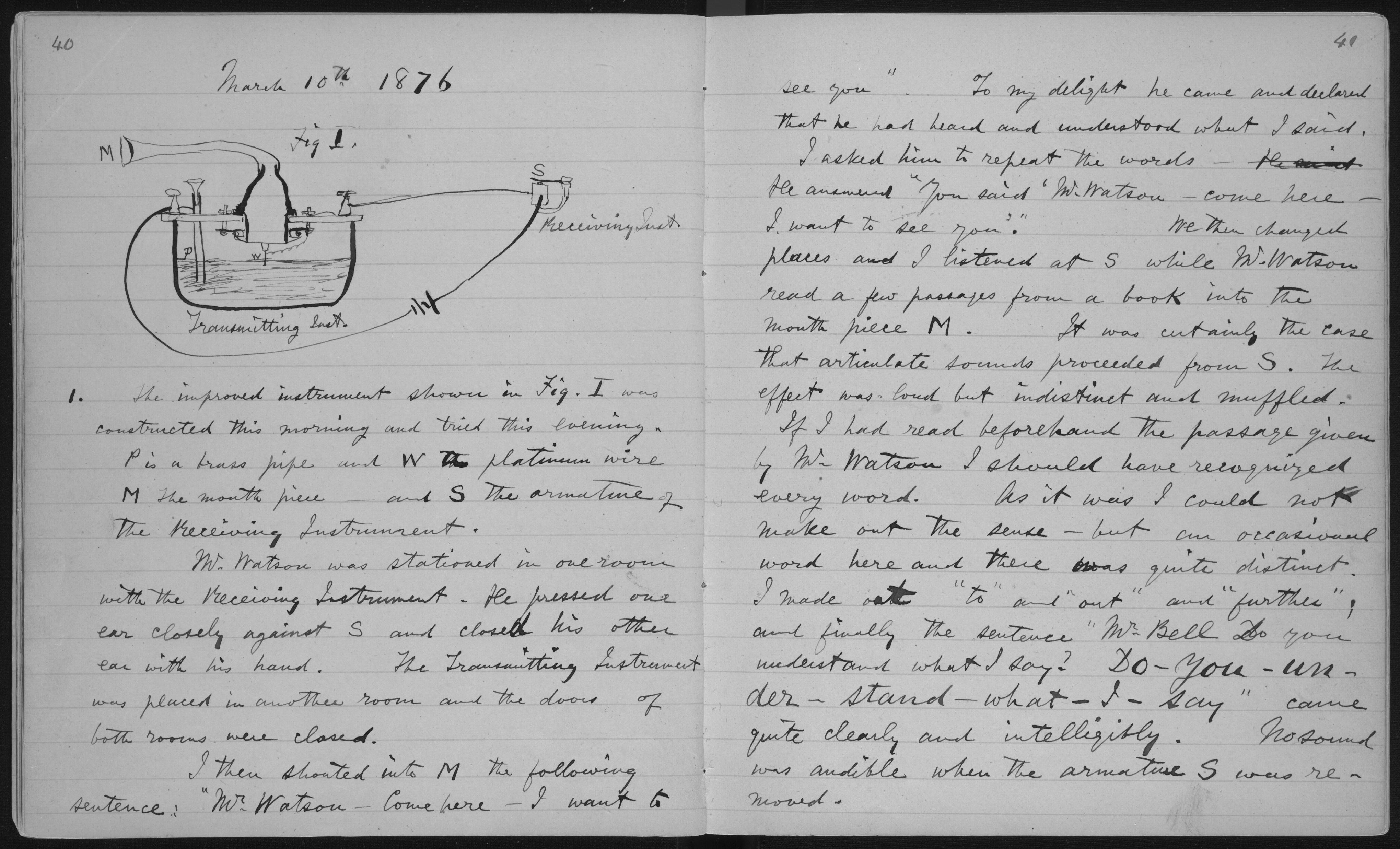Laboratory notebook
| This article does not cite any references or sources. Please help improve this article by adding citations to reliable sources. Unsourced material may be challenged and removed. (October 2007) |
A lab notebook is a primary record of research. Researchers use a lab notebook to document their hypotheses, experiments and initial analysis or interpretation of these experiments. The notebook serves as an organizational tool, a memory aid, and can also have a role in protecting any intellectual property that comes from the research.
Structure


The guidelines for lab notebooks vary widely between institution and between individual labs, but some guidelines are fairly common, for example, like those in the reference.[1] The lab notebook is typically permanently bound and pages are numbered. Dates are given as a rule. All entries are with a permanent marker, e.g., a ballpoint pen. The lab notebook is usually written as the experiments progress, rather than at a later date. In many laboratories, it is the original place of record of data (no copying is carried out from other notes) as well as any observations or insights. For data recorded by other means (e.g., on a computer), the lab notebook will record that the data was obtained and the identification of the data set will be given in the notebook. Many adhere to the concept that a lab notebook should be thought of as a diary of activities that are described in sufficient detail to allow another scientist to replicate the steps. In laboratories with several staff and a common laboratory notebook, entries in the notebook are signed by those making them.
Legal aspects
To ensure that data cannot be easily altered, notebooks with permanently bound pages are often recommended. Researchers are often encouraged to write only with unerasable pen, to sign and date each page, and to have their notebooks inspected periodically by another scientist who can read and understand it. All of these guidelines can be useful in proving exactly when a discovery was made, in the case of a patent dispute.
Electronic formats
Several companies now offer electronic lab notebooks. This format has gained some popularity, especially in large pharmaceutical companies, which have large numbers of researchers and great need to document their experiments.
Open lab notebooks
In recent years, lab notebooks kept online have started to become as transparent to the world as they are to the researcher keeping them, a trend often referred to as Open Notebook Science, after the title of a 2006 blogpost by chemist Jean-Claude Bradley. The term is frequently used to distinguish this aspect of Open Science from the related but rather independent developments commonly labeled as Open Source, Open Access, Open Data and so forth. The openness of the notebook, then, specifically refers to the set of the following points, or elements thereof:
- Sharing of the researcher's laboratory notebook online in real time without password protection or limitations on the use of the data.
- The raw data used by the researcher to derive observations and conclusions are made available online to anyone.
- All experimental data are shared, including failed or ambiguous attempts.
- Feedback and other contributions to the research effort can be integrated easily with the understanding that everything is donated to the public domain.
The use of a wiki makes it convenient to track contributions by individual authors.
See also
- Composition book
- Electronic lab notebook
- Invention disclosure
- Inventor's notebook
- Laboratory information management system
References
- ↑ Hans Friedrich Ebel, Claus Bliefert, William E. Russey,"The art of scientific writing: from student reports to professional publications in chemistry and related fields", 2nd edition, Wiley, 2004, pp.15-20. (Google books)









